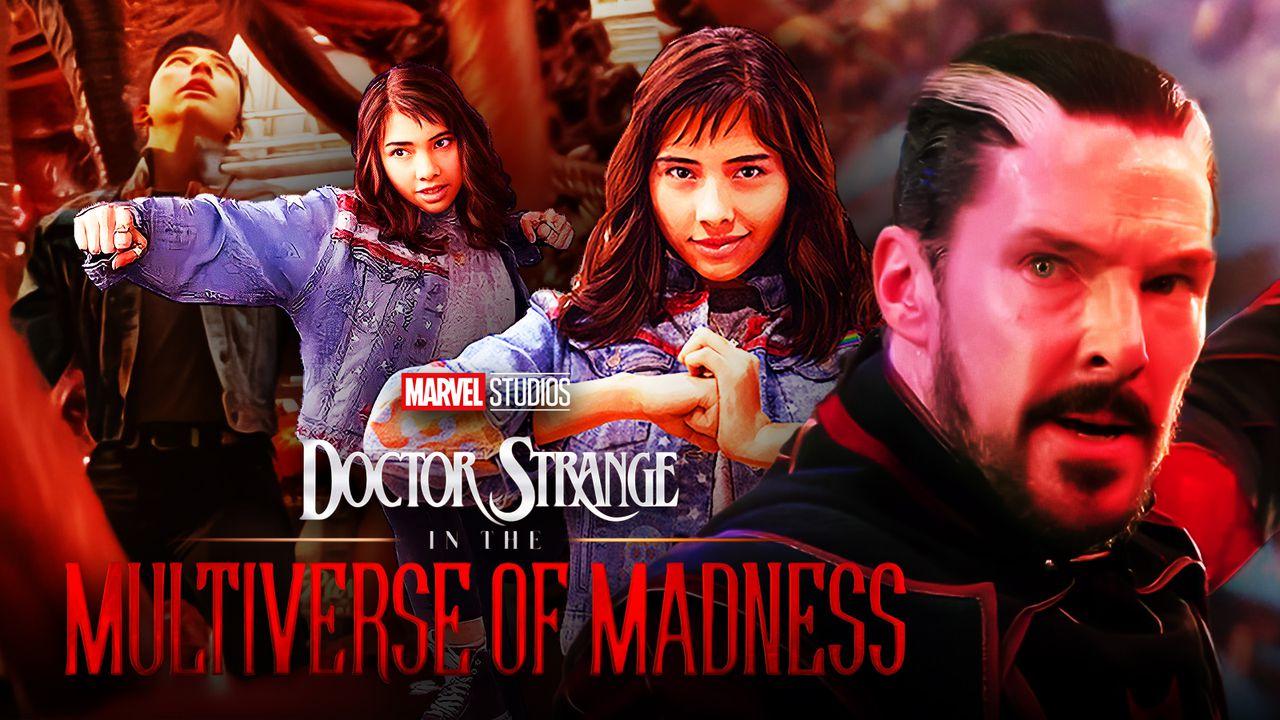Marvel Studios Boss Speaks Out on New LGBTQ Hero's Impact on Children

Marvel Studios has worked hard to prove its commitment to the inclusion of characters that represent all walks of life, especially people of color and those in the LGBTQIA+ community. On the LGBTQIA+ front, from Phastos in Eternals to Loki and Sylvie in Loki, Marvel has taken major steps toward making the world in the MCU look more like the world around us.
The heavily anticipated Doctor Strange in the Multiverse of Madness will be no exception, either. While the story will, of course, focus heavily on Benedict Cumberbatch's titular character and Elizabeth Olsen's Wanda Maximoff/Scarlet Witch, it will also introduce Xochitl Gomez's America Chavez. Miss America, as she's known in the comics, will be the MCU's first Latina LGBTQ character.
ADVERTISEMENT
Recent interviews with Gomez and Marvel Studios President Victoria Alonso give some insight into how much America Chavez's inclusion in the MCU matters.
America Chavez Brings Representation to Latinx, LGBTQ Youth

Marvel recently posted an interview with Xochitl Gomez and Victoria Alonso on their website where they discussed Gomez's excitement about the role and what America Chavez brings to the MCU.
In preparing for the role, Gomez "dove straight into the comics" to learn everything she could about the character. She "instantly fell in love with [Miss America]," and saw Chavez's "confidence as a stand-out trait."
ADVERTISEMENT
Victoria Alonso added that Gomez was a perfect pick to bring Miss America to life on the big screen. She noted, “With Xochitl, there was a cheekiness about her. There was a spark in her eye. We saw the defiance of America Chavez in her.”
Alonso spoke about what Chavez means to the wider MCU community in terms of representation. To her, Miss America is "the type of character [she's] been waiting to see."
“This character was important to me for many personal reasons, but also because it was important that we make the effort to have every kid in this world represented in our universe, and she represents both the LGBTQ+ and Latinx community. It’s the type of character I’ve been waiting to see us have since we started this journey with Iron Man back in 2008. I’m so happy she is part of the MCU family, and I know she will be a great addition.”
The veteran Marvel Studios producer, who was promoted to a position as studio president of physical and post-production, visual effects, and animation production in September 2021, noted that "children [and adolescents] want to see themselves represented" on screen with characters like Chavez "to see themselves; to not be invisible:"
ADVERTISEMENT
“[America] is a young Latina who is part of the LGBTQ+ community, and has great power... Children want to see themselves represented. There is this level of identity that comes to be a very important moment in an adolescent’s life – to see themselves; to not be invisible.”
Gomez, who auditioned for the role at age 13, acknowledged that kids her age will be excited to "see a young person in the middle of a big story."
“It’s so cool that fans will get to see a young person in the middle of a big story like this, and know that things that happen in our kid lives are important because it shapes who they’ll become when they’re older as adults. It’s exciting that we will hopefully get to see more of how things play out for America in the future.”
Representation Is Key in the MCU's Future

Make no mistake, what fans have seen so far is just the tip of the iceberg in terms of Marvel's plans for greater inclusion.
ADVERTISEMENT
The path to where the studio finds itself today is in many ways an interesting mirror of the story of its counterpart in the world of comics. Where the cast of characters was once dominated by white men and highly sexualized women, the superhero world of today—both in comics and in films—has increasingly become as diverse as the world of the fans who enjoy them.
Miss America is far from the only LGBTQIA+ character slated to arrive in the MCU, and she's also not the first. As noted above, Loki revealed the titular characters' gender fluidity and the bisexuality of both Loki and Sylvie, while Phastos of the Eternals was shown with his husband. Thor: Ragnarok cut a scene that would have canonized Valkyrie's bisexuality, though that may be set right in Love and Thunder.
In a time when debate rages about LGBTQIA+ representation in media intended for children, both Marvel Studios and their parent company Disney are proving that they are taking a firm stance in their commitment to allowing young people of all kinds to see themselves in the shows and films they love. As the studio looks to a future that will almost certainly include groups like the X-Men and Young Avengers, the world of the MCU is sure to become even more colorful
ADVERTISEMENT
Comments
Post a Comment